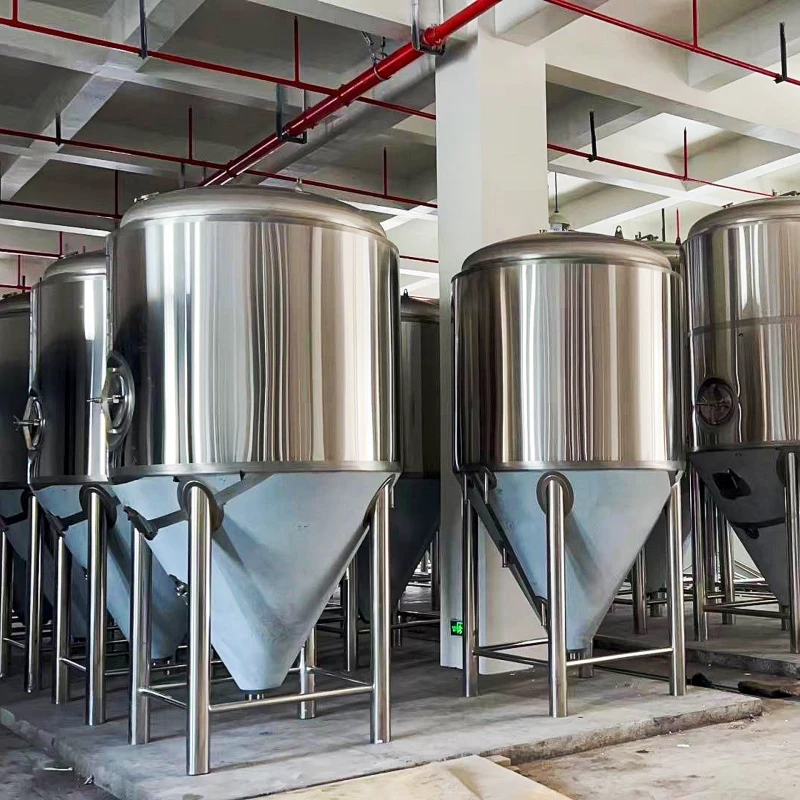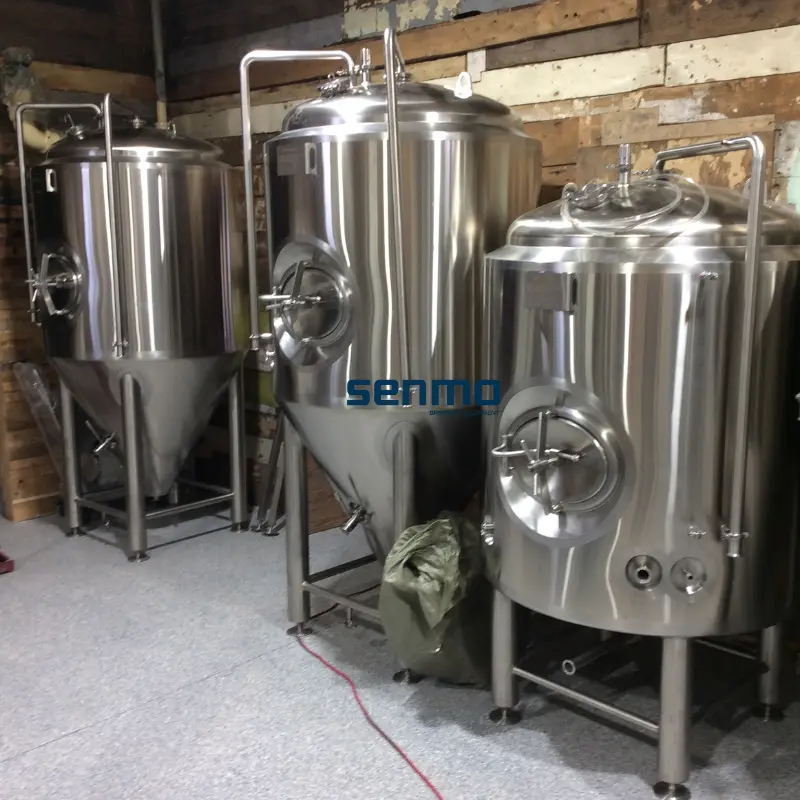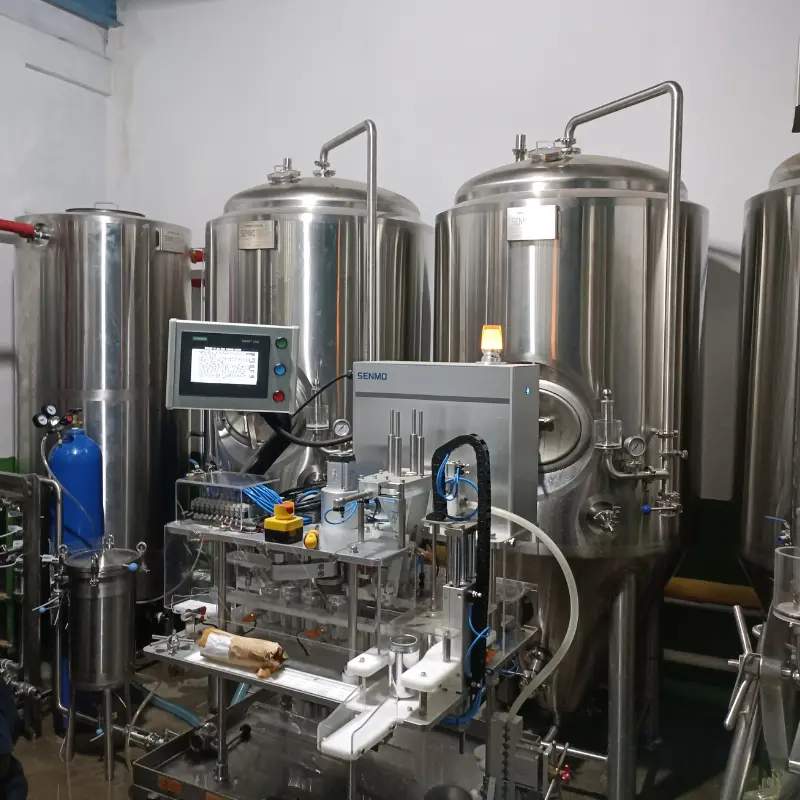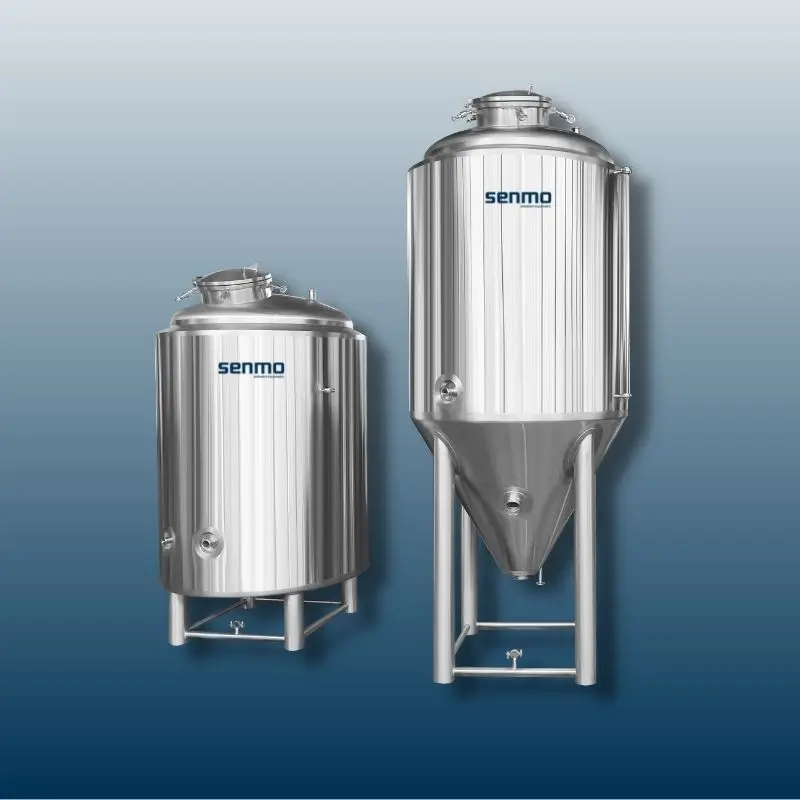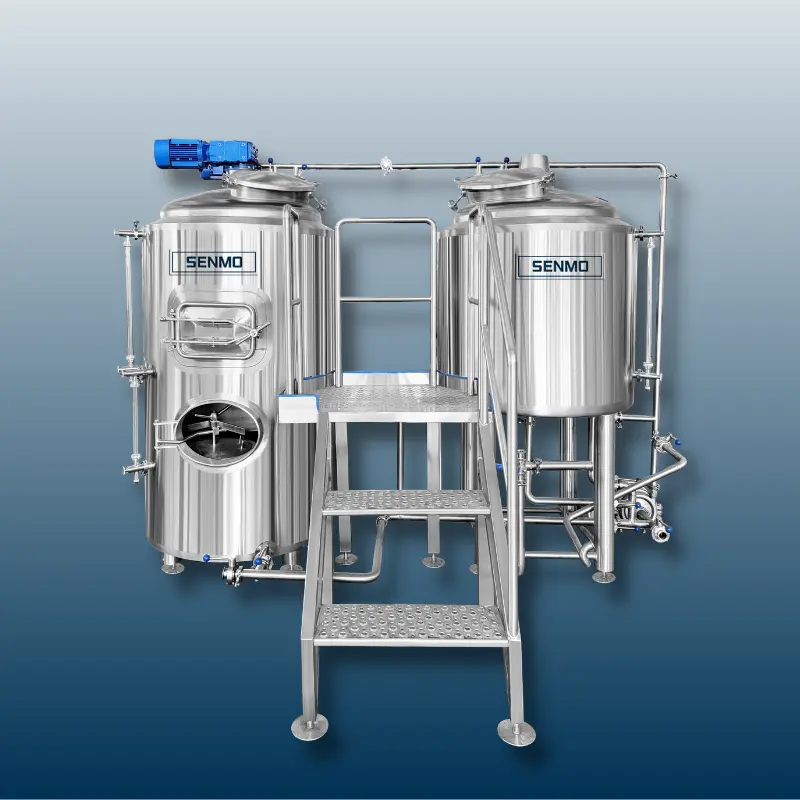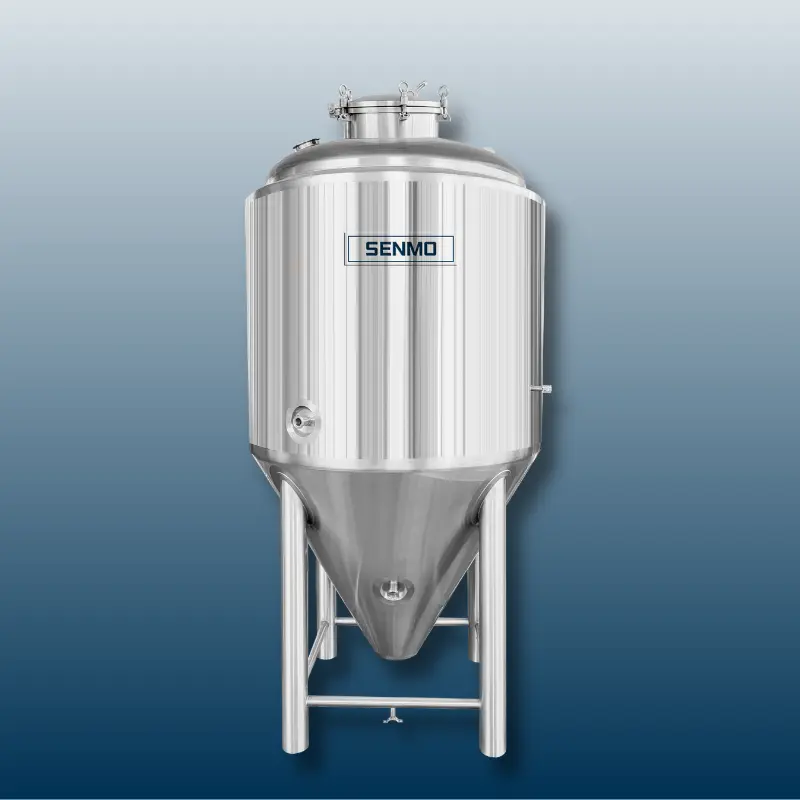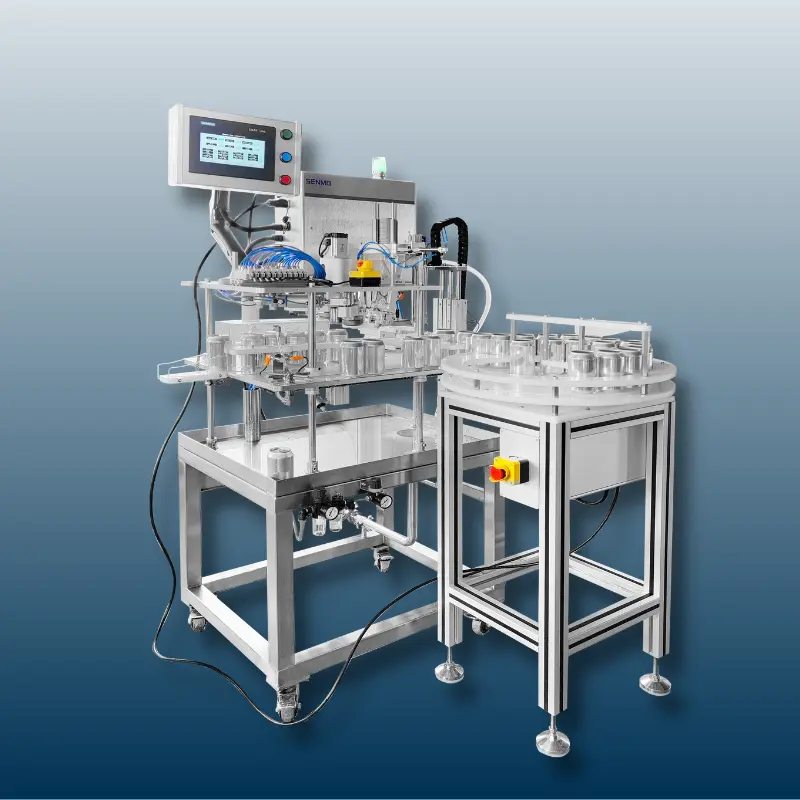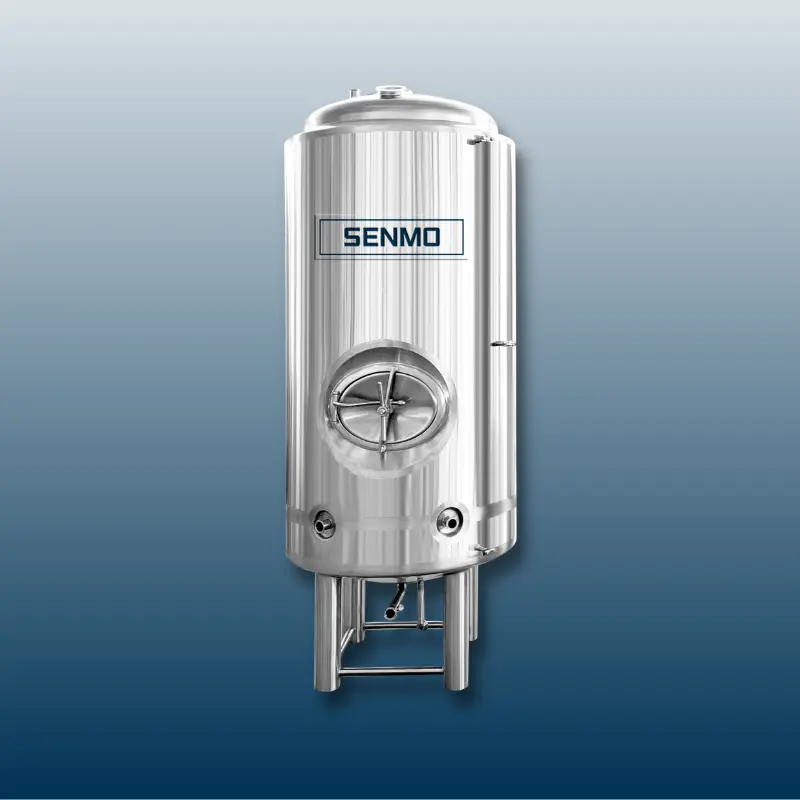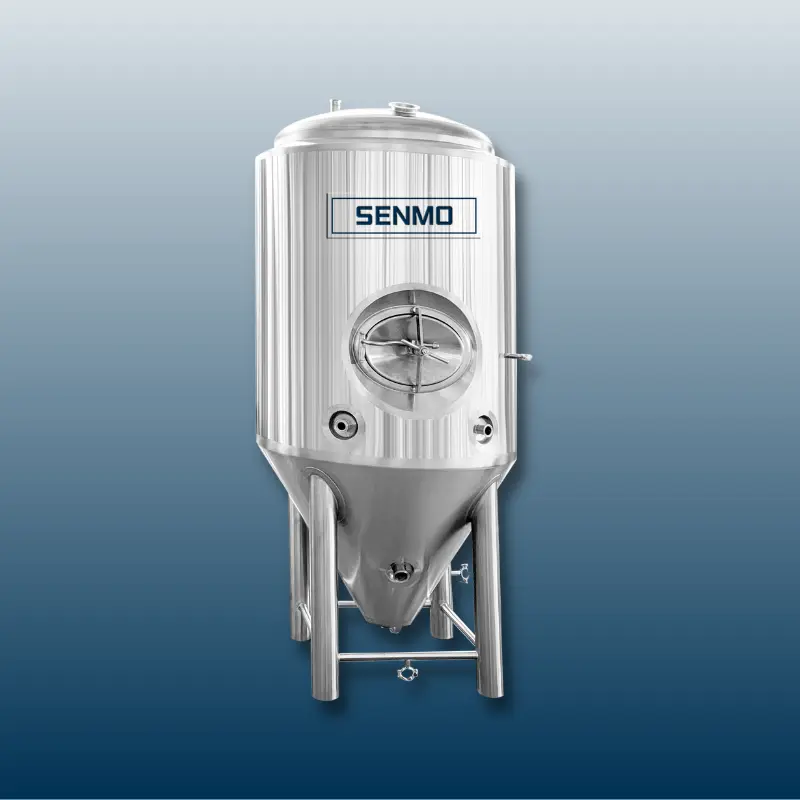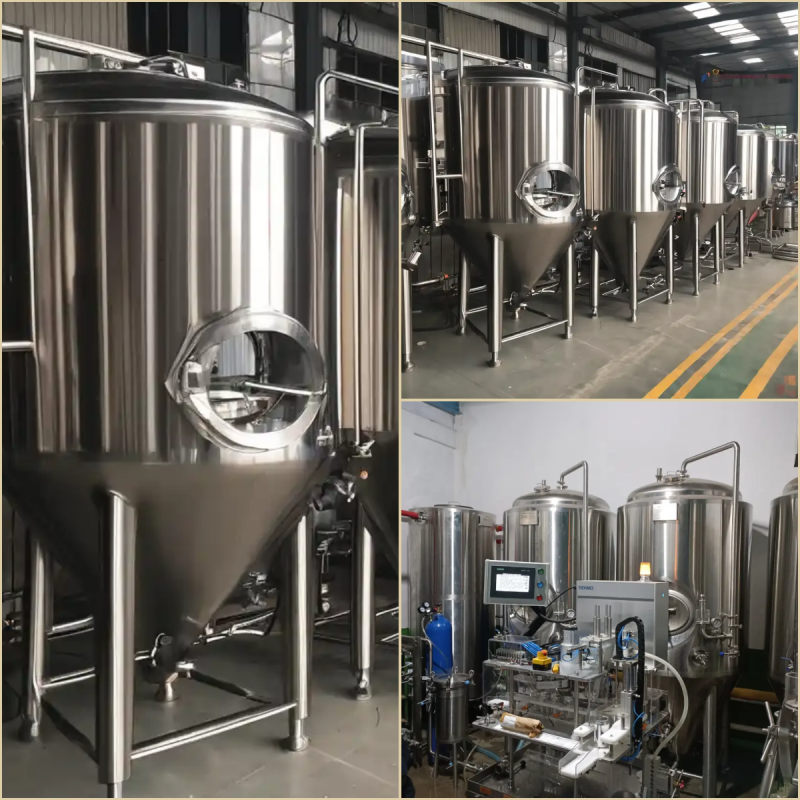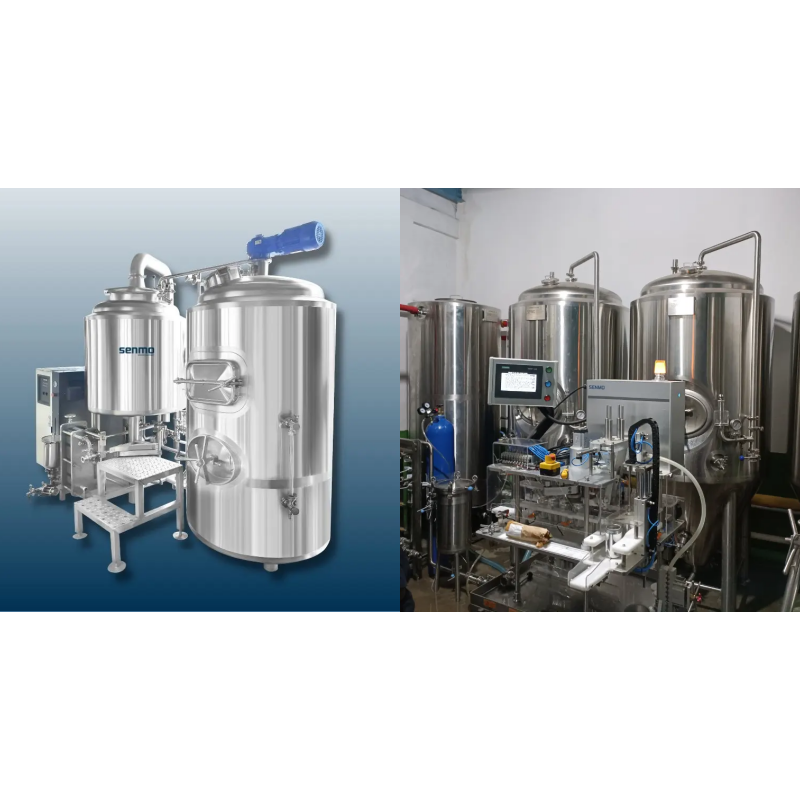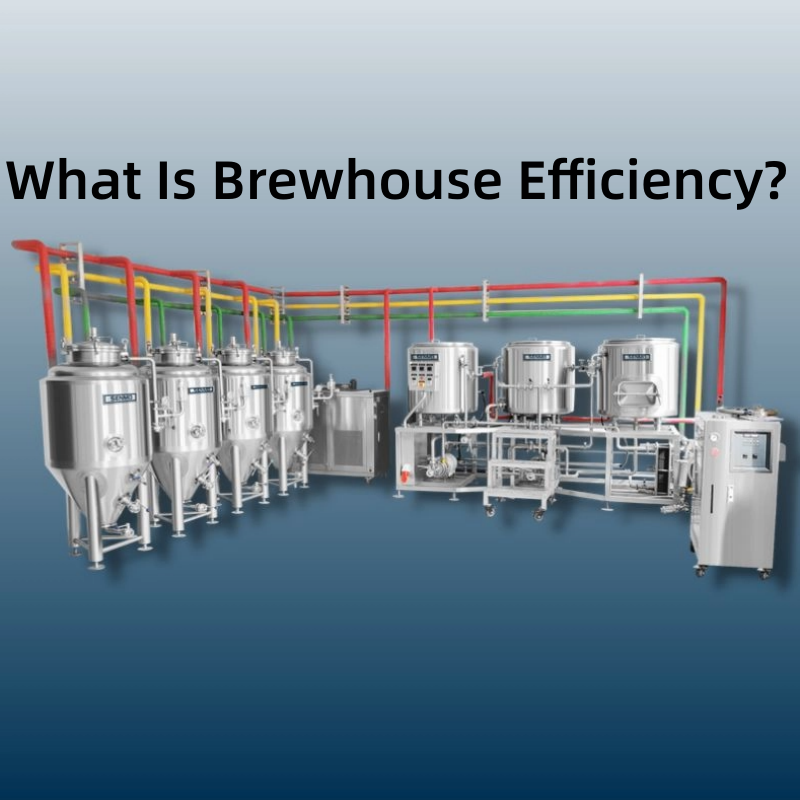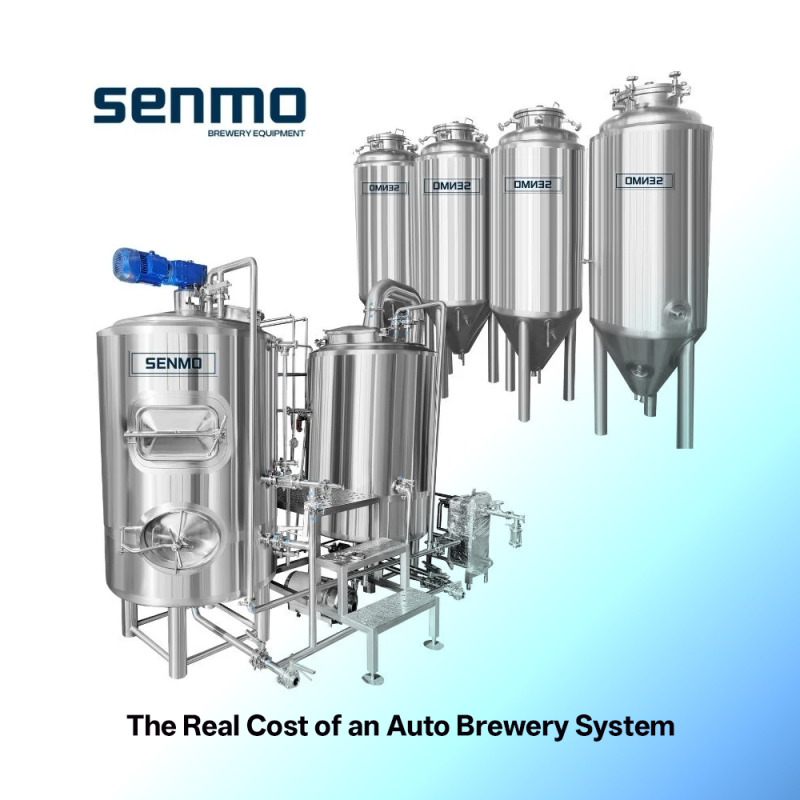A 1000L brewhouse is an essential piece of equipment for any brewery looking to expand its production capacity. With a 1000L brewhouse, breweries can produce larger batches of beer, reducing their brewing time and increasing their overall output. In this article, we will explore the parameters, pricing, and maintenance of a 1000L brewhouse, and how to use it effectively.
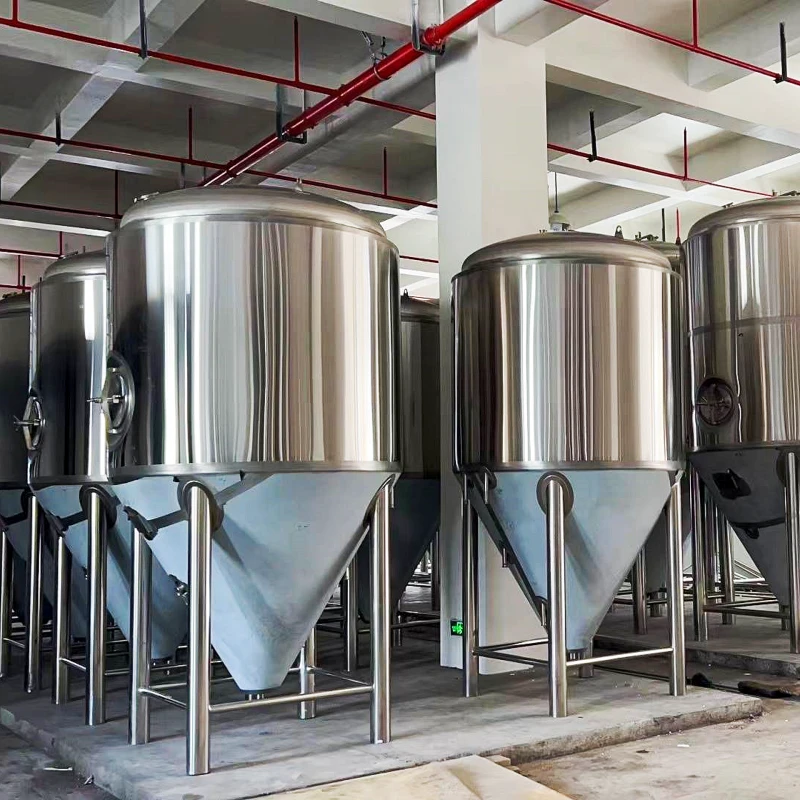
Parameters of a 1000L brewhouse
A 1000L brewhouse typically includes a mash/lauter tun, a brew kettle, a whirlpool tank, and a hot liquor tank. The system is designed to accommodate a single batch of beer with a volume of up to 1000 liters, making it suitable for medium-sized breweries. Other parameters to consider when purchasing a 1000L brewhouse include the heating system, the cooling system, the control panel, and the material of construction.
The heating system is critical to the brewing process, and a 1000L brewhouse can have either an electric, steam, or direct-fire heating system. The cooling system is also essential to control the temperature during the brewing process, and it can either be a glycol cooling system or a water cooling system. The control panel helps to monitor and adjust the temperature, pressure, and other parameters during the brewing process.
Price of a 1000L brewhouse
The price of a 1000L brewhouse can vary depending on the manufacturer, the material of construction, and the features included. Generally, a 1000L brewhouse can cost anywhere from $50,000 to $100,000 or more. Factors that can affect the price include the heating and cooling system, the material of construction, and the control panel. It is important to research different manufacturers and compare prices before making a purchase.
Using a 1000L brewhouse
Using a 1000L brewhouse requires knowledge of the brewing process and the equipment itself. It is important to follow the manufacturer's instructions for operating the brewhouse and to have a skilled brewer on staff who understands the brewing process. Before starting a batch, it is essential to clean and sanitize the equipment thoroughly to prevent contamination.
The brewing process typically involves four steps: mashing, boiling, whirlpooling, and fermenting. In the mashing step, the grains are mixed with hot water in the mash/lauter tun to extract the sugars. The resulting liquid is transferred to the brew kettle, where it is boiled with hops to impart flavor and bitterness. After boiling, the liquid is transferred to the whirlpool tank, where it is separated from the solids and cooled down. Finally, the liquid is transferred to a fermenter, where yeast is added to start the fermentation process.
Maintaining a 1000L brewhouse
Maintaining a 1000L brewhouse is essential to ensure its longevity and reliability. Regular cleaning and sanitation are crucial to prevent contamination and ensure the quality of the beer. It is also important to inspect the equipment regularly and replace any worn or damaged parts. The heating and cooling systems should be checked regularly to ensure they are functioning correctly, and the control panel should be calibrated to maintain accurate temperature and pressure readings.
In conclusion, a 1000L brewhouse is an essential piece of equipment for breweries looking to expand their production capacity. When choosing a 1000L brewhouse, it is important to consider the parameters, pricing, and maintenance requirements. Proper use and maintenance of a 1000L brewhouse can help ensure the quality and consistency of the beer produced, leading to increased customer satisfaction and business success.
FAQ
1. What is a 1000L brewhouse, and what does it include?
A 1000L brewhouse is a brewing system designed for producing beer on a commercial scale. It typically includes components such as a mash tun, lauter tun, kettle, whirlpool, hot liquor tank, fermentation tanks, and associated pumps and controls.
2. What production capacity can I expect from a 1000L brewhouse?
A 1000L brewhouse has a production capacity of 1000 liters of beer per batch. This capacity is suitable for medium-sized craft breweries and can produce a significant quantity of beer for distribution.
3. Is 1000L brewhouse equipment suitable for a startup brewery?
A 1000L brewhouse is usually best suited for established or medium-sized breweries due to its larger production capacity and associated costs. Startups may find smaller brewing systems more cost-effective initially.
4. What types of beer can I brew with a 1000L brewhouse?
You can brew a wide range of beer styles, including ales, lagers, stouts, IPAs, and specialty beers, using a 1000L brewhouse. The equipment's flexibility allows for various brewing techniques and recipe experimentation.
5. Is 1000L brewhouse equipment customizable to fit my specific brewing needs?
Yes, we offer customization options for 1000L brewhouse equipment. You can tailor the system to match your specific brewing style, ingredients, and production requirements.
6. What kind of maintenance and cleaning are required for a 1000L brewhouse?
Regular maintenance and cleaning are essential to ensure the longevity and efficiency of your brewhouse equipment. This includes cleaning tanks, inspecting valves and pumps, and addressing any wear and tear.
7. How long does it take to brew a batch with a 1000L brewhouse?
The brewing time for a 1000L batch can vary depending on the recipe, but it typically takes several hours to complete the brewing process. Fermentation and conditioning times will add to the overall production timeline.
8. Are there any specific regulations or certifications I should be aware of when using a 1000L brewhouse for commercial brewing?
Yes, commercial brewing is subject to various regulations and certifications, including health and safety standards, quality control measures, and alcohol licensing requirements. It's crucial to comply with local and national regulations.
9. Can I expand my brewing capacity with a 1000L brewhouse in the future?
Many breweries choose to expand their brewing capacity by adding additional tanks and fermenters as their business grows. A 1000L brewhouse can be part of a scalable brewing operation.
10. What are the advantages of investing in a 1000L brewhouse for a commercial brewery?
- A 1000L brewhouse offers increased production capacity, allowing you to meet the demand of a growing customer base. It also provides more brewing flexibility, enabling you to experiment with new beer styles and recipes.
When considering a 1000L brewhouse for your brewery, it's essential to conduct a thorough assessment of your production goals, available space, and budget. Consulting with experienced brewers and equipment providers can help you make an informed decision to support your brewing venture effectively.
